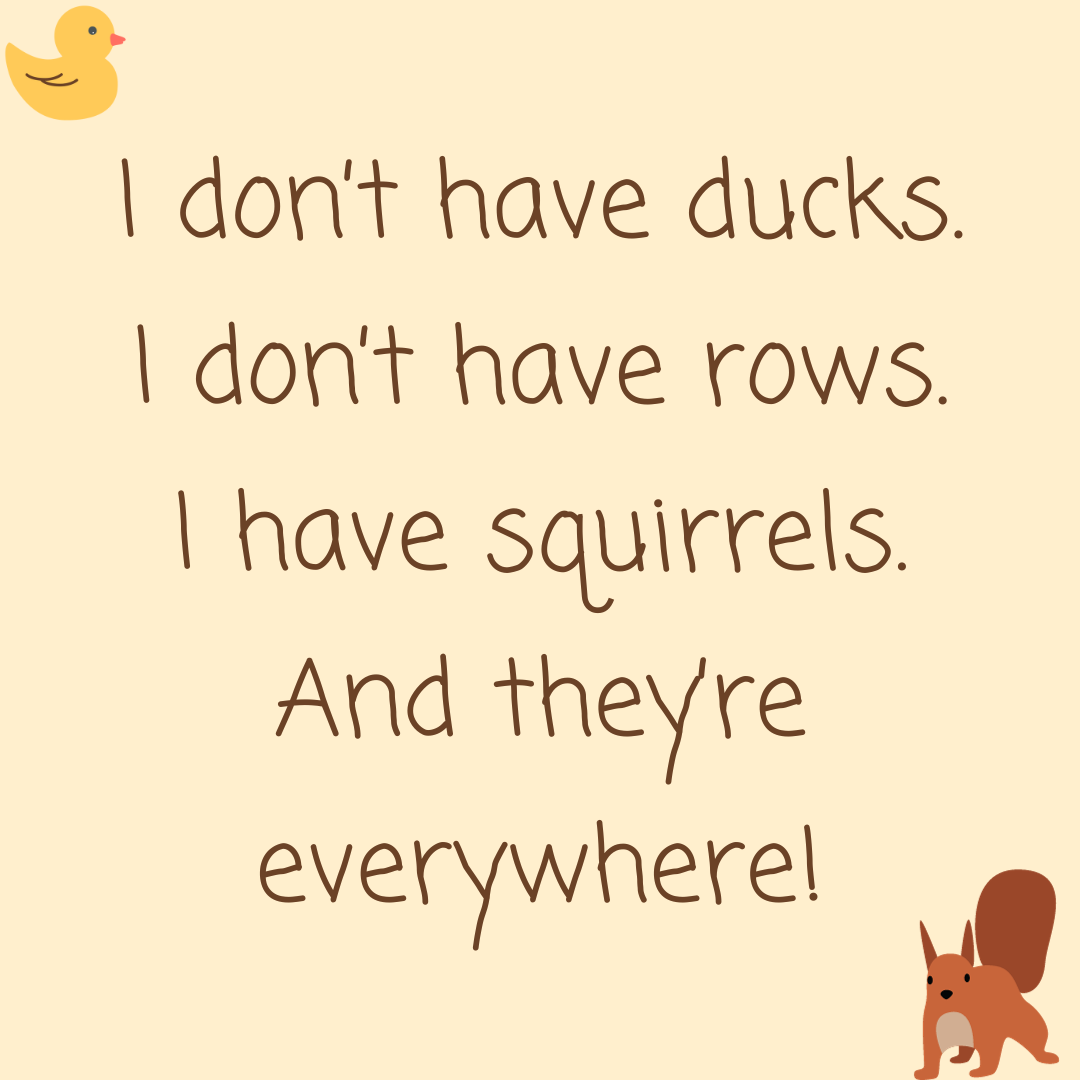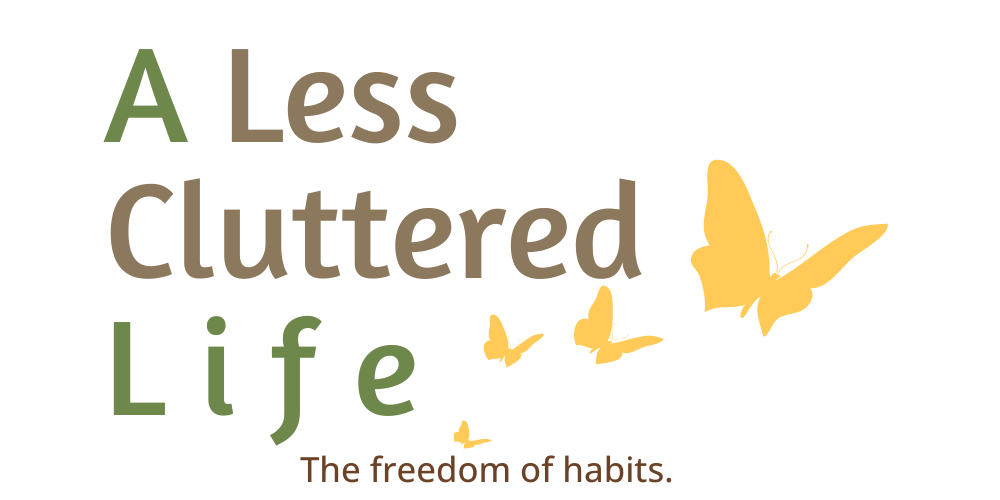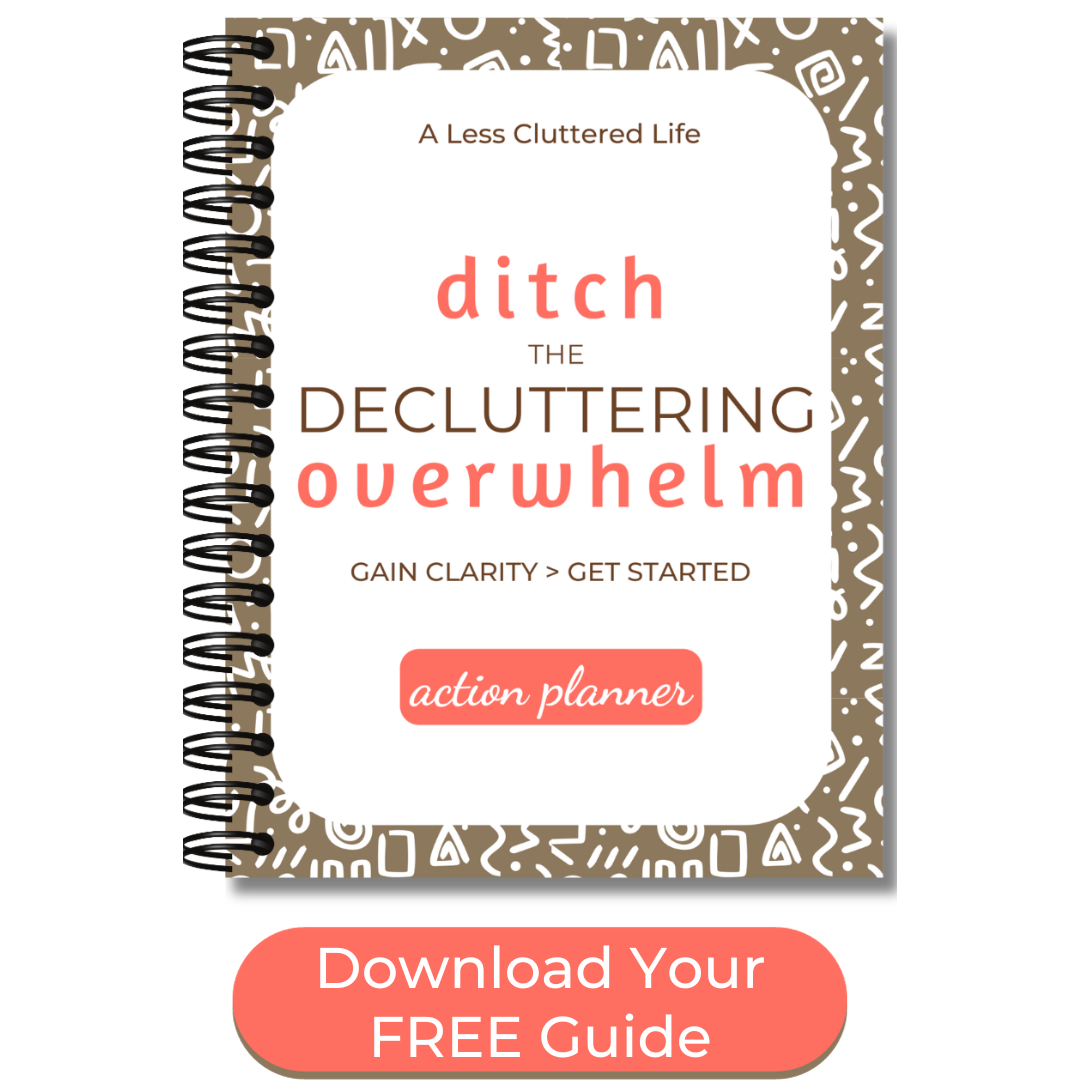|
by Susan McCarthy If you're wondering how to declutter your home without feeling overwhelmed, chances are that you aren't going to start with the things and thoughts that are distracting you. But distractions can diminish what you want to accomplish because they pull you in too many directions. So, overcome your struggles with decluttering by learning how to stay focused while decluttering. When you begin decluttering, you may struggle to make the time to sort through the things in your home. You might also find it a challenge to figure out where to start. And once you make time and figure out where to start, now you get to make decisions about all this stuff! No wonder you feel overwhelmed. But one thing you may not account for is getting distracted while you declutter. Anything can be a distraction. What pulls your attention might not bother someone else. My husband can have the television, YouTube videos, or a podcast on as background noise (sometimes two things at the same time!). On the other hand, I’ll end up listening to a podcast I could care less about because my attention keeps getting pulled toward the noise. I have a harder time blocking out these distractions than my husband does. Getting distracted while decluttering (or, really, doing anything) can mean that you lose your momentum (and good luck getting it back), forget what you were going to do next, or even wind up getting involved in too many tasks at the same time (and creating trails of mess from one end of your house to the next). At the end of the day, you know you were busy, but you’re frustrated because that busyness led to nothing getting accomplished. Where distractions come fromWorrying about being distracted while decluttering is probably low on your list of concerns. However, you can be distracted by the people and things in your environment as well as your own thoughts…and this can slow you down and make it more difficult to make decisions…and to see progress. You’re not clear on the task you’re working on. If you’re faced with a lot of stuff, you may bounce around, doing a bit of work here and a bit there. If you don’t clarify what you’re working on, you may try to work on everything. Each item that catches your attention becomes your focal point, for all ten seconds. You’re distracted when you find yourself working on a task that was not the one you started with. Maybe you zigzagged – you went to put something away in another room and then began tidying that space. Others want your attention. Or maybe people or pets keep commanding your attention. Every time you return to your decluttering task, you must redirect your attention and get back into what you were doing. Our negative thoughts fill us with distracting doubts. And let’s not forget our worst enemy – ourselves. “I should be doing this faster.” “Am I keeping too much stuff?” “Am I getting rid of too much stuff?” “I should keep this in case I lose weight.” And on and on. We tell ourselves stories and unhelpful rules that can distract us from our goal to live in a peaceful and organized home. Knowing what might distract you is a good thing because it allows you to plan how to counter these pulls on your attention. How to plan for distractionsIf you’ve been distracted in the past by something or someone, know that it can happen again. Before you get distracted the next time, decide how you can overcome these obstacles by using “If…then…” plans. One, notice what you find distracting.
Two, plan how you’ll counter the distraction. An “If…then… plan” is simple in concept but can be a challenge to enact. Keep it simple enough to remember while you’re faced with a distraction. And know that if your plan doesn’t work, that isn’t a failure. You’ve learned how to tweak your plan to hopefully get better results. And remember that you’ll likely need a few If…then… plans for different situations. Don’t worry about trying to cover every possible distraction. Instead, plan for the ones you’re likeliest to encounter. If your plan doesn’t work, now you know what won’t work. Use that information to tweak your plan and try again. Oh, and don’t get distracted by making plans to counteract distractions! So, examples for planning around the distractions mentioned above,
Decluttering when you’re distracted. How to focus.Below are several techniques you can try to help you focus while sorting through stuff. Background noise – yeah or nay?As I mentioned, my husband seeks out background noise. I can listen to music, but nothing with singing. And no Disney songs performed on the piano. How do you best work? If it’s too quiet for you, listen to podcast or audio book. Perhaps one that you only listen to when you’re decluttering. The reward for decluttering is that you get to catch up on the latest episode or hear what happens in the next chapter. You may be able to do some activities with the television on. I’m thinking of sorting through papers or photographs. Consider a lighthearted comedy as opposed to a compelling drama so you don’t end up putting all your attention on the show. Set a limit to the amount of time you'll work.If you push yourself to work for too long, you can get fatigued and allow distractions by default. Notice your energy level – both physical and mental. When I was emptying my parents’ house, I would push myself to work for hours without taking a break – sometimes not even for a sip of water. I was a wreck. While you may be of the mindset that now that you’ve decided to declutter, you should get it done as quickly as possible by working as long as you can, this is exhausting work. Set a time to start and a time to finish up. And stick with this schedule. When you get tired, it becomes more difficult to make decisions. This means that you’re no longer working with any sort of efficiency. It’s too easy to get distracted while in your exhausted haze, as you look at your phone, or open another drawer looking for some stimulation to act as a pick me up. Unfortunately, it probably won’t reengage you in the task you were working on. If you struggle with chronic health conditions that affect your energy levels, plan to do less than you think you can, even on a “good” day. If you want to declutter for half an hour a day, consider breaking those thirty minutes into two or three smaller decluttering sessions. There’s too much to look at. No wonder you’re overwhelmed.It is overwhelming to look at too much stuff. It’s difficult for your eye to land on any one item…everything just blurs into an undifferentiated mass. And that can be the problem. Instead of seeing the individual items to handle, everything seems interconnected. You don’t even know where to start since it’s difficult to see trees for the forest. Unfortunately, seeing all these small items as a single grouping can make it difficult to start and then make headway in decluttering that space. Work on a Little Space I’m in favor of working on Little Spaces…a drawer, a shelf, the top of an end table, or a defined part of a countertop or table. For example, that dresser consists of many Little Spaces: six drawers; top of the dresser; and then maybe even underneath, behind, and beside the dresser. Thinking in Little Spaces can help you break down an entire room into something more manageable. You aren’t decluttering the bedroom; you’re sorting through the stuff on top of the dresser. And a bonus to thinking in Little Spaces…you complete more tasks more frequently and feel a greater sense of accomplishment which equals a boost to your motivation! Hide what you don’t want to focus on However, if there’s a lot of stuff surrounding that little space, it can be difficult to see it! Drape sheets over the areas you aren’t working on in the room. You’ll know the stuff is there, but you’ll only be looking at what is uncovered. Move items to a folding table If there is space, bring a folding table into the room and move the contents of the drawer or shelf you’re working on over to this table. You’re moving the items out of the context of their home base. You can’t just poke at the items and push them around the spot where they normally live and call it good. You have to touch and move everything. Highlight where you’re working Angle a bright lamp so it shines on the space you’re working in (you can also do this with the two suggestions above). If it’s safe to do so (there’s nothing underfoot to trip on), you could have this as the only light in the room. You’re spotlighting the space where you’re doing the work. Get some help Sit in a chair (maybe just outside the doorway to the room) and have a helper bring one item at a time to show you. Look at the item they are holding and decide if you want to keep, donate, give away, or sell the item. Your helper is there to show you the items, not to make the decision (or offer commentary). And to stay objective, you don’t want to handle these items. How do I declutter my house without being overwhelmed?Distractions can lead to overwhelm because you’ll realize that you’re stretching your attention as you try to focus on too many things. The following suggestions can help to eliminate the overwhelm of trying to declutter a room filled with a lot of stuff by limiting what you are focusing on at any one time.
Using any of these techniques isn’t cheating or being weak. Chances are you won’t need this system throughout the process of decluttering your entire house. You may not even need to use one of these methods from start to finish in the space. However, if a technique allows you to get started and to see some progress, with fewer distractions, then you'll be able to focus on the tasks associated with your goal of organizing your home. More Resources to Help You Declutter with Intention
0 Comments
Your comment will be posted after it is approved.
Leave a Reply. |
Categories
All
Hi, I'm SusanI'm a former teacher who became a professional organizer (and not because I'm a natural-born neatnik). I live with my husband and fluffy cat on a river in Massachusetts. I crochet, make handmade cards, and love reading young adult novels. Learn more about my decluttering journey here. |
|
Copyright 2024 Susan McCarthy - Susan@ALessClutteredLife.com -
Privacy Policies |
Proudly powered by Weebly

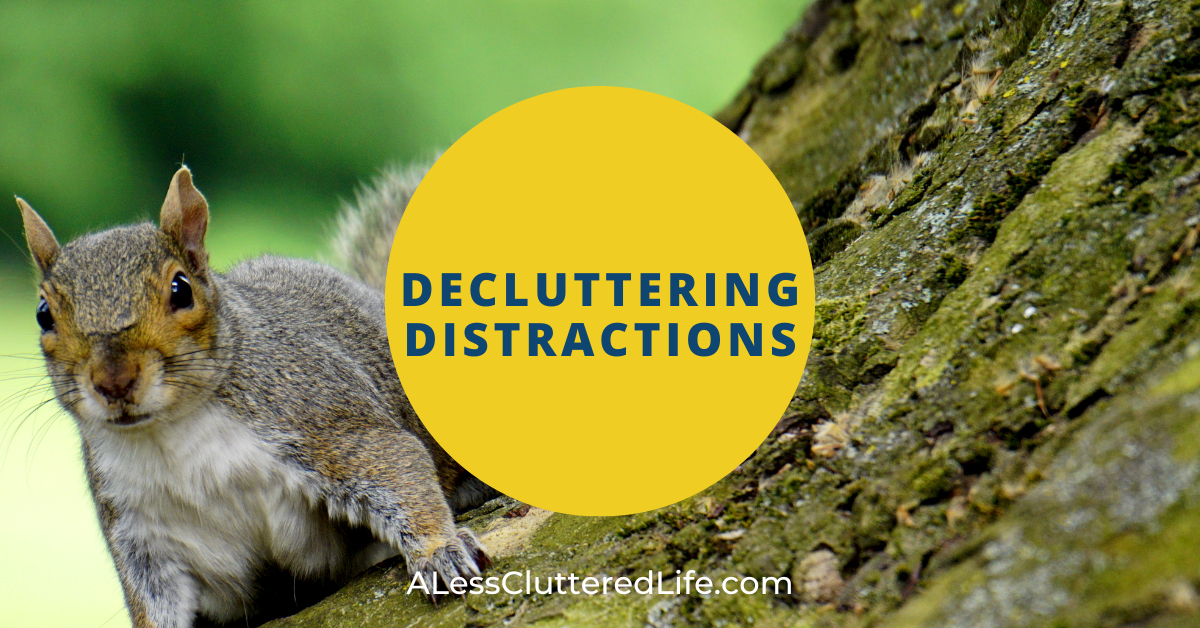
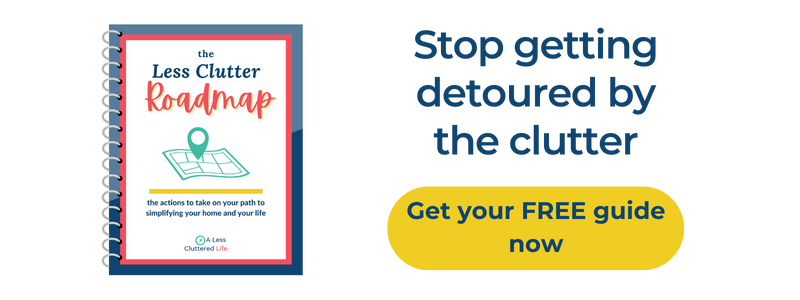
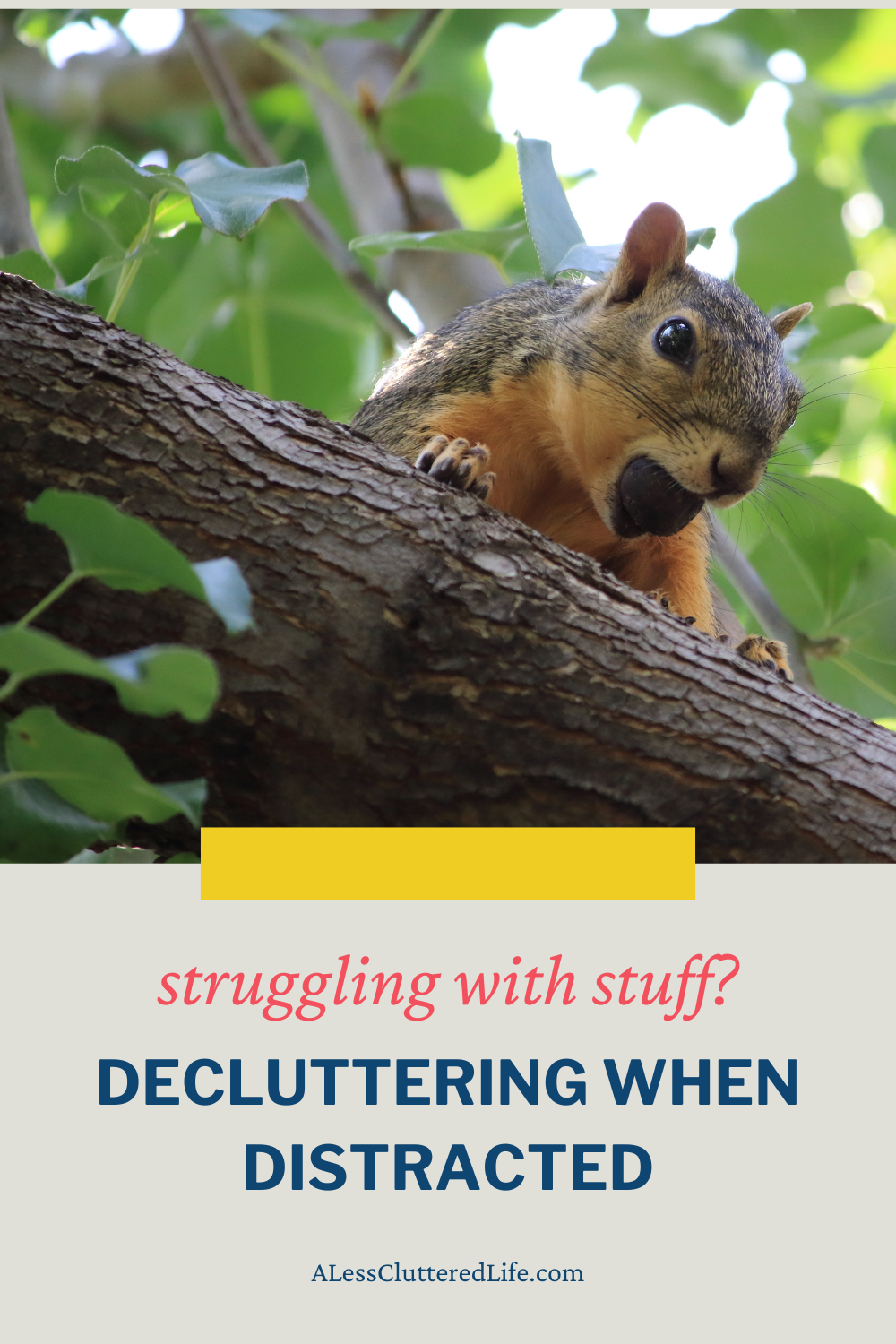
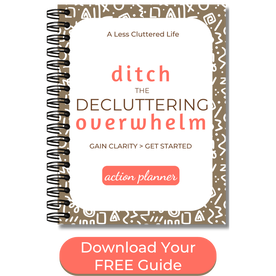

 RSS Feed
RSS Feed
